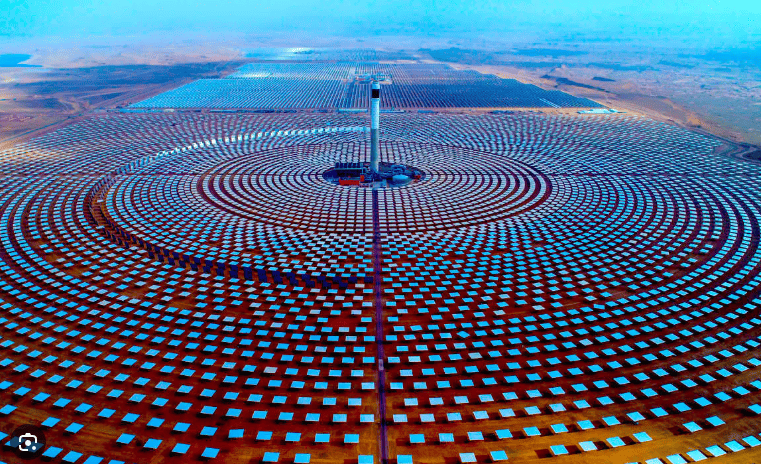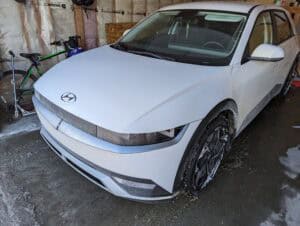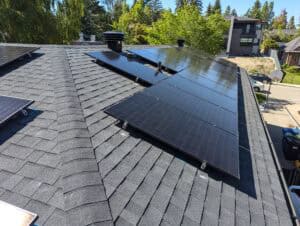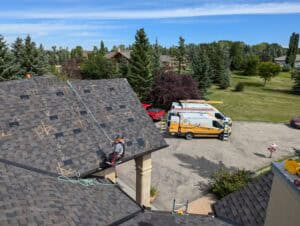The Future of Solar Energy: Innovations and Advancements | Calgary Solar Experts
Solar energy is a clean, renewable power source that continues to transform how we generate electricity. As technology evolves, solar energy is becoming more efficient, affordable, and accessible than ever before. Here’s what Calgary homeowners and businesses should know about the innovations shaping the future of solar.
Quick Facts for Calgary Homeowners
- Solar costs have dropped by over 80% since 2010, making systems more affordable.
- Next-gen thin-film panels offer higher efficiency and flexible design options.
- Energy storage systems now allow you to store solar power for cloudy days or outages.
- Calgary averages over 330 sunny days per year — ideal for solar generation.
What Is Solar Energy?
Solar energy comes directly from the sun’s light. Photovoltaic (PV) panels convert sunlight into electricity using semiconductor cells. The energy produced powers homes, businesses, and electric devices, offsetting power drawn from the grid. In Calgary, where sunlight is abundant and electricity costs continue to rise, solar energy provides a sustainable and cost-effective alternative.
Innovations in Solar Energy
1. Thin-film solar panels
New materials such as cadmium telluride and copper indium gallium selenide are improving panel efficiency while reducing manufacturing costs. These thin-film technologies are lighter and can perform better in low light, making them a great fit for Alberta’s variable weather.
2. Building-integrated photovoltaics (BIPV)
BIPVs integrate solar cells directly into construction materials such as roofing tiles or windows. They generate power without needing traditional panel arrays and offer sleek design options for new builds or retrofits. For Calgary’s growing housing market, this technology offers both form and function.
Other Advancements Transforming the Industry
Energy storage systems
Modern battery systems let you store solar energy for nighttime use or grid outages. This is especially useful in Calgary’s winter months when sunlight hours are shorter. Combining solar with storage ensures reliable power year-round.
Smart grid integration
Smart grids track electricity flow in real time, optimizing the balance between renewable and grid power. They help lower energy costs and increase grid stability. As Alberta’s grid becomes more renewable, smart integration will be key to supporting widespread solar adoption.
AI-driven monitoring
New systems use artificial intelligence to predict output, detect faults, and adjust inverters automatically. These advancements improve reliability and make maintenance easier for homeowners and installers.
Is Solar Energy Right for Calgary Homes?
If you’ve wondered whether solar panels are worth it in Calgary, the answer is yes. Modern systems perform exceptionally well in Calgary’s bright, dry climate. Most homes need between 5 and 10 kilowatts of capacity, depending on energy use and roof size.
A professional installer such as Panel Upgrade Experts can design a system tailored to your home’s needs. We use high-quality solar components, including advanced microinverters and energy storage solutions, to maximise long-term efficiency.
Start Building a Brighter Future
With major innovations in panel design, energy storage, and monitoring technology, solar energy is more powerful and practical than ever. To explore your options or request a free system assessment, contact Panel Upgrade Experts today. We’ll help you understand the costs, savings, and next steps to make solar work for your Calgary home or business.
Solar Innovation FAQ
What are thin-film solar panels?
Thin-film panels use advanced materials to capture sunlight more efficiently. They are flexible, lightweight, and ideal for installations where traditional panels don’t fit.
Can solar panels work during Calgary’s winter?
Yes. Cold weather actually improves panel efficiency, and Calgary’s bright conditions provide strong output even in winter months.
Is energy storage necessary?
Storage isn’t required but adds flexibility and backup power. Batteries let you use solar energy when sunlight is low or during outages.




